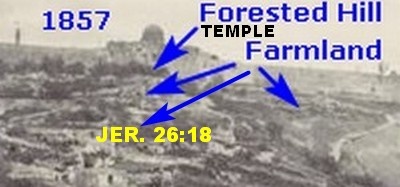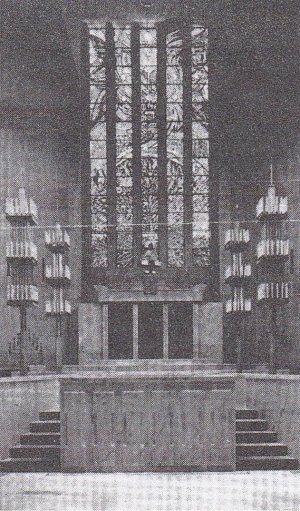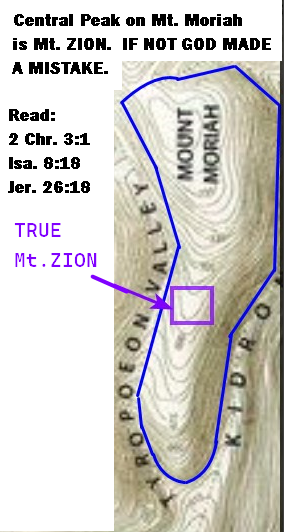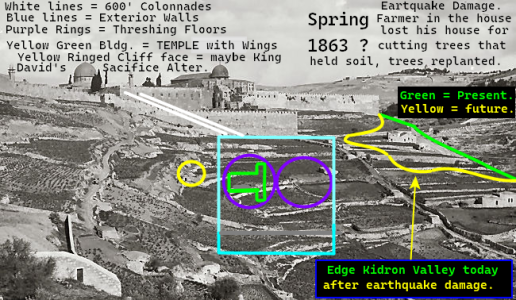To be honest, VCO, I stopped paying attention too your multimedia slide show a while back. I'm bad with walls of text and pictures. I'm more of a one point at a time sort of person. But...
First of all the "falling away" portion of 2nd Thess is a bad translation. But I'll leave that to you and Leonard to figure out. Hint: It's the only time the word is used in this way.
Second of all it would be difficult to be deceived since it hasn't happened yet.
There have been many attempts to peg this too Titus or others...doesn't wash. Still a future event.
2 Thessalonians 2:3 (NASB)
3 Let no one in any way deceive you, for
it will not come unless the apostasy comes first, and the man of lawlessness is revealed, the son of destruction,
QUOTE:
Do Not Be Forgetful
for it will not come unless the apostasy comes first, and the man of lawlessness is revealed, the son of destruction, who opposes and exalts himself above every so-called god or object of worship, so that he takes his seat in the temple of God, displaying himself as being God. Do you not remember that while I was still with you, I was telling you these things? (
2:3b-5)
This point is closely tied to the first one, since forgetting the truth leaves believers vulnerable to deception. The key to this section is in the last sentence:
Do you not remember that while I was still with you, I was telling you these things? The imperfect tense of the Greek verb (noting repeated action in past time) translated
was telling indicates that teaching about end-time events was a continual theme during Paul's ministry in Thessalonica. Therefore, what the apostle wrote in this section was not new to the church; he merely reiterated what he had already taught them (cf.
2 Peter 1:12-15). That he taught prophetic truth in the few months he had with the new believers in Thessalonica shows that biblical eschatology, including the sequence of events, is not unimportant, as some think, but is foundational to the Christian faith. As noted above, its purpose was not sensational but practical; had the Thessalonians remembered Paul's teaching, they would not have lost their joy and hope.
The Thessalonians had forgotten that Paul told them when he was there that the Day of the Lord
will not come unless the apostasy comes first. Out of all the precursors of the Day of the Lord (e.g.,
Joel 2:31;
3:14;
Mal. 4:5), Paul singled out the
apostasy. He was not, of course, setting a posttribulational date for the Rapture (cf. the discussion of
1 Thess. 4:13-18 in
chapter 11 and
1 Thess. 5:1 in
chapter 12 of this volume); he did not tell his readers that they would live to experience the
apostasy and the unveiling of the man of lawlessness. Paul's point was merely that the
apostasy will precede the Day of the Lord. And since the
apostasy has not yet taken place, the Day of the Lord could not have arrived.
The basic meaning of apostasia (
apostasy) is "revolt," or "rebellion." In its only other New Testament appearance it refers to forsaking the Law of Moses (
Acts 21:21). The Septuagint, the Greek translation of the Old Testament, uses it three times to express rebellion against God (
Josh. 22:22;
2 Chron. 29:19;
Jer. 2:19). Thus, the word marks a deliberate defection from a formerly held religious position.
Paul was not referring here to apostasy (defection from the gospel truth) in the general sense. There have always been apostate churches, like that at Laodicea (
Rev. 3:14-22), as well as apostate individuals (
Heb. 10:25-31;
2 Peter 2:20-22). Such generalized apostasy, because it is always present, cannot signify a particular time period. Therefore, it cannot be the specific event Paul has in mind.
Apostasy will reach its peak in the end times:
MacArthur New Testament Commentary, The - MacArthur New Testament Commentary – 1 & 2 Thessalonians.
END QUOTE:






